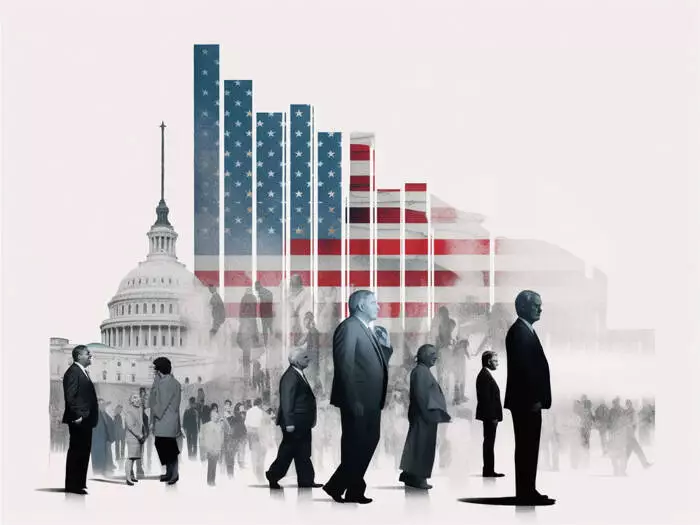In recent weeks, the burgeoning world of political betting has come under scrutiny as questions regarding its integrity and stability arise. A particularly alarming incident involving a French trader placing substantial bets on Trump-related contracts across various Polymarket accounts has ignited fears of market manipulation. Although an investigation found no legal misconduct, this event underscores a pivotal vulnerability inherent in lightly regulated prediction markets. Such incidents can erode public confidence, raising doubts about the reliability of forecasts produced by these platforms. Investors must tread carefully, aware that even a whiff of impropriety can tarnish the legitimacy of political betting.
As the political arena heats up leading to the 2024 elections, the specter of fiscal crises looms large, overshadowing the betting excitement. Notably, respected investor Paul Tudor Jones has delivered a sobering analysis amidst the fervor, warning that the surging U.S. deficit—projected at a staggering $1.8 trillion—presents a more pressing concern than electoral outcomes. His foreboding implications about a potential crisis in the bond market suggest that the candidates’ previous records on fiscal responsibility may be inadequate for navigating the impending economic storm. This situation poses a complicated tapestry of challenges for policymakers and investors alike.
The concept of a “Minsky moment,” introduced by economist Hyman Minsky to describe sudden market collapses spurred by unsustainable borrowing practices, echoes through Jones’s warnings. His decision to adjust his bond portfolio in anticipation of heightened volatility speaks volumes to the potential pitfalls facing longer-term investors. As the nation’s fiscal landscape shifts, market participants must be vigilant, recognizing that the aftermath of the election could force tough decisions in Washington regarding tax policies and federal expenditures. The idea that post-election economic realities could challenge commonly accepted political narratives adds a layer of complexity to the electoral process.
As Robinhood launches its new election contracts, investors are confronted with a daunting paradox: the allure of politically motivated speculation teeters on the brink of profound economic unease. The interplay between political dynamics and fiscal accountability suggests a pivotal moment for market participants engaged in betting activities. Navigating this intricate landscape will require a keen understanding of the broader economic implications that may overshadow short-term electoral decisions.
The intersection of political betting with real economic challenges serves as a critical reminder of the delicate balance required in investment strategy. The potential for unique trading opportunities exists, but so too does the realization that impending fiscal doom could rapidly redefine the stakes. Investors must remain astute as they explore the fluctuating terrain of prediction markets in a time when economic foundations are tested. The unfolding narrative reflects not only the resilience of democratic processes but also the urgent need for fiscal prudence in an increasingly volatile market environment.

